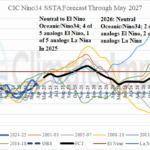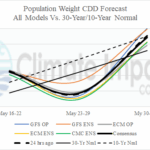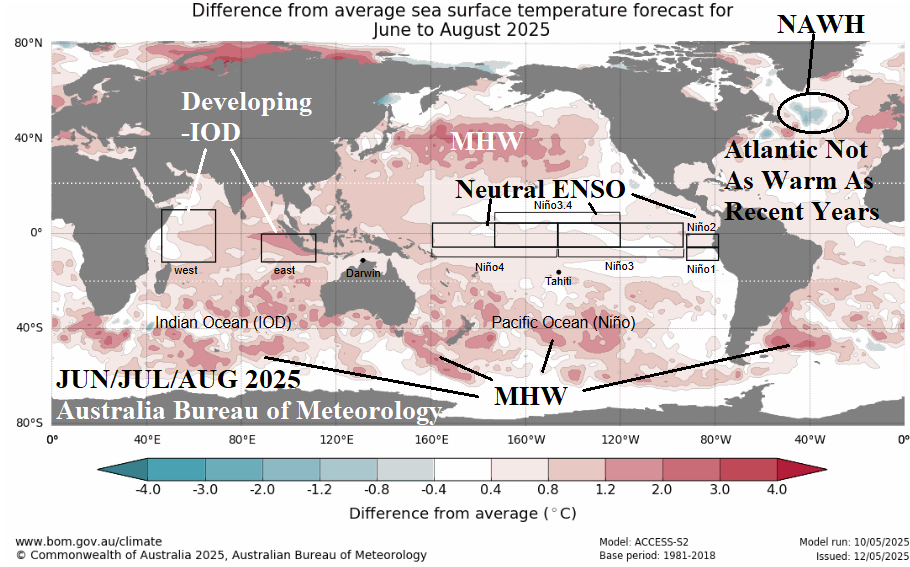
Extended Range ENSO and IOD Forecast
05/11/2025, 3:49 pm EDT
Chilly End to May in U.S.
05/19/2025, 6:13 am EDT
Climate Impact Company Weekly ENSO Climate Diagnostics
Issued: Monday May 12, 2025
Highlight: ENSO is right at neutral phase. A look at the Australia Bureau of Meteorology JUN/JUL/AUG 2025 global SSTA forecast.

Fig. 1: The Nino SSTA regions 12-week monitoring identifying almost exactly normal in recent weeks.
Discussion: The Nino SSTA regions are each at or very close to exactly normal as neutral ENSO reigns (Fig. 1). In the subsurface, the eastern equatorial Pacific Ocean is mixed with cooling off the northwest coast of South America (where dramatic warming was observed earlier this year) and an eastward extension of a warm West Pacific Kelin Wave to past the Dateline (Fig. 2). Overall, upper ocean heat in the eastern equatorial Pacific Ocean is slightly warmer than normal with a slight warming trend. The upper ocean heat observations and their trend are usually a good sign of any ENSO phase change ahead. The latest JUN/JUL/AUG 2025 global SSTA forecast from the Australia Bureau of Meteorology reveals neutral ENSO with slight warming of the Nino SSTA regions, the beginnings of negative phase Indian Ocean dipole (-IOD), and a summertime North Atlantic basin which is warmer than normal although not nearly as warm as recent years (Fig. 3). The semi-permanent marine heat wave (MHW) in the North Pacific is confined to the middle latitudes without reaching the Eastern Asia or Western North America coastlines. The North Atlantic warm hole (NAWH) appears south of Greenland.

Fig. 2: Upper ocean heat anomalies across the equatorial Pacific Ocean.

Fig. 3: Australia Bureau of Meteorology global SSTA forecast for JUN/JUL/AUG 2025 with Climate Impact Company annotations.

